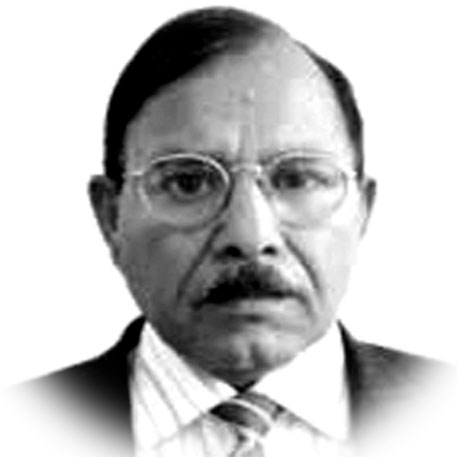WHAT happened in the National Assembly on 15 June involving legislators from both sides— who were hurling abuses and throwing budget documents at each other besides getting physical— is condemnable in the strongest possible terms.
The foul language used during the fracas would even put to shame the street urchins. Their behavior has embarrassed the entire nation as the rowdy scenes were going live for the entire world to see.
We also witnessed similar enactment during the debate on the budget for 2018-19. If that is the kind of democracy they intend to promote and how they aspire to serve the masses— which is the basic reason for them to be there— we would be better without it.
In a democratic dispensation the ruling party and those sitting on the opposition benches are two sides of the same coin charged with the responsibility to promote national objectives and well-being of the masses though they might have different approaches to deal with the confronting issues and challenges.
They are supposed to have a working relationship to carry forward the business of Parliament in a smooth way.
But what we have witnessed during the last three years is an ambience of confrontation and unbridgeable animosity for which both sides are equally responsible.
I am afraid the country is in for an unending cycle of chaos and disorder in the days to come if they keep treading the same path.
Political stability is an indispensable imperative for propelling economic growth and attracting foreign direct investment, which in the modern era is one of the most vital economic variables.
It is therefore incumbent upon the ruling party and those sitting in the opposition to put their narrow political agendas at the back burner and develop a working relationship to promote national interests, which take precedence over everything else.
Parliament is for deliberating on issues of national importance and conducting legislative business pursuant to a healthy debate.
The opposition parties have a right to criticize the legislative proposals of the government and other policy initiatives in different domains but that opprobrium must be based on credible and convincing arguments and alternatives instead of mud-slinging, character assassination of each other and opposition for the sake of opposition.
The legislators need to realize that the nation is spending millions of rupees on their pay and allowance, perks and privileges in the hope that they would use their collective wisdom to solve their problems instead of compounding them through their irresponsible behaviour.
We hear persistent rhetoric about sanctity and ascendency of Parliament but regrettably do not see the legislators or the political parties showing real interest in upholding the prestige of that August House.
The issues that are meant to be debated and resolved in Parliament are debated on the media and other forums conducive for political battles.
The result is that the reforms that are badly needed to improve the system of governance and resolving issues that have been instrumental to perennial political instability in the country continue to remain unresolved and no worthwhile legislation has been done in this regard.
In my considered opinion there is a need for national consensus on the economic roadmap or Charter of Economy spelling out long term strategy to put the country on the path of sustained economic development, which is faithfully implemented by every government that comes into power.
The other thing that is required to be given priority is electoral reforms that are supported by all the political forces in the country so that nobody has any justification thereafter to propagate the mantra of rigging or money changing hands in buying loyalties. This would entail constitutional amendments to facilitate the initiatives.
Here comes the need for the ruling party and the opposition parties to prove that they placed the national interests above their own political agendas.
The government has been repeatedly inviting the opposition for a dialogue on the electoral reforms, rightly so, but the opposition has been continuously refusing with the result that the government perforce had to push electoral reforms envisaged by it through the National Assembly without any debate on the issue. It is yet to be passed by the Senate to become an act of Parliament.
However, the ECP to whom the government had sent the proposed bill, reportedly has observed that many of the clauses of the legislation violated the constitutional provisions.
As the controversy rages on, the opposition has convened an APC to discuss the electoral reforms issue which I think is not an appropriate thing to do.
Why cannot the opposition present their own proposals in Parliament and challenge the provisions of the bill that they think do not help in ensuring transparency in the elections and settling the rigging controversy forever?
I think the stumbling block in the productive engagement between the government and the opposition parties are the personal egos on both sides. In politics and the business of promoting state interests, ego has no place.
The onus to initiate this interaction basically lies with the government at an appropriate level.
The breakthrough can come if the Prime Minister himself invites the leader of the opposition and other parliamentary leaders, which is the usual practice in democratic entities if pressing national issues are involved.
There is no doubt that the Prime Minister is sincere in fixing the maladies afflicting out polity and strengthening real democracy in the country.
But the dilemma is that whether he likes it or not he needs cooperation of the opposition parties who are in Parliament with people’s mandate.
The opposition also needs to rethink its strategy. It should allow the government to complete its tenure and let the people be the judge.
That is how the ambience of confrontation can be set aside and the way paved for systemic and electoral reforms.
— The writer is former Director General Ministry of Information and Broadcasting, based in Islamabad.










